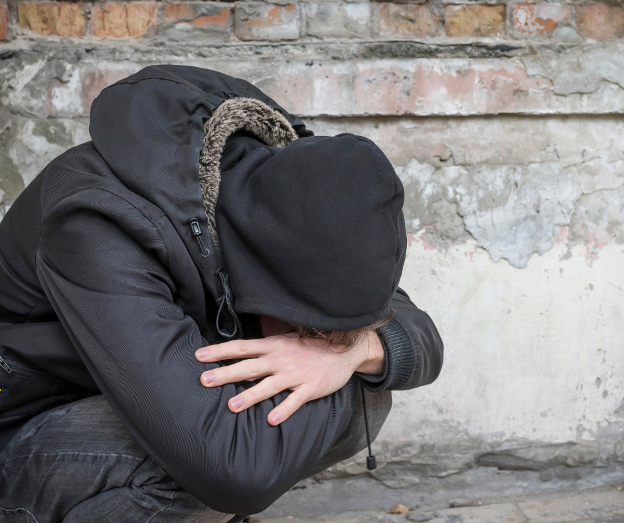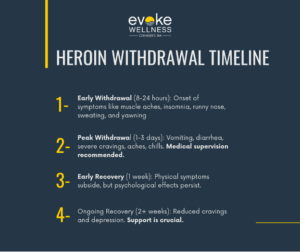You’re struggling with heroin addiction, facing the prospect of detox and withdrawal. It’s frightening and painful, but with medical guidance, proper medication, and a supportive environment, you can safely navigate heroin detox. Overdose deaths involving opioids hit record highs in 2022, with over 93,000 fatalities. But with the right help, you don’t have to become another tragic statistic. This guide will walk you through heroin detox, fentanyl detox, and other opiate detox processes, providing information on:
- Medically-assisted heroin addiction treatment
- Fentanyl and other opiate addiction treatment
- Drug and alcohol detox processes
- Suboxone clinics and therapy
- Intensive inpatient rehab programs
You can take control of your addiction. With courage and commitment, a new life of health and hope awaits.
Call us at (617) 917-3485 today or reach out online.
Understanding Heroin Addiction and Withdrawal
Powerful Physical Dependence
When you use heroin regularly, your brain chemistry adapts to the presence of this powerful opioid. This creates an intense physical dependence that makes quitting extremely difficult. Abruptly stopping heroin use triggers severe withdrawal symptoms like muscle and bone pain, vomiting, diarrhea, insomnia, and uncontrollable leg movements.
These intense cravings and flu-like symptoms peak within 1-3 days and can persist for over a week. They occur because heroin has disrupted the natural balance in your brain’s reward and pleasure pathways.
Medically-Supervised Detox
Attempting heroin withdrawal alone is dangerous and ineffective for most people. That’s why medically-supervised detox at a rehab facility is crucial. Medications like buprenorphine (Suboxone) can provide relief by reducing cravings and easing withdrawal effects.
Supportive care also helps you rest comfortably as unpleasant symptoms subside under medical oversight. Counseling during this initial detox prepares you mentally for the next phase of addiction treatment.
Path to Long-Term Recovery
With the acute withdrawal stage managed safely, you can then fully commit to comprehensive addiction treatment. This multifaceted approach combines evidence-based therapy, counseling, and lifestyle changes. It equips you with the skills and support system needed to maintain sobriety long after detox.
Preparing for Heroin Detox
Seeking Medical Supervision
The first and most crucial step in preparing for heroin detox is seeking professional medical supervision. Attempting to detox from heroin on your own can be extremely dangerous and even life-threatening. Benzodiazepines are commonly prescribed during heroin detox to help manage withdrawal symptoms and relieve anxiety, but they are highly addictive and should only be used under close medical monitoring.
Getting Support
In addition to medical care, it’s essential to have a strong support system in place. This could include loved ones, a therapist, or a support group. Detoxing from heroin is both physically and emotionally challenging, and having a reliable network can make a significant difference in your recovery journey.
Preparing Mentally
Mentally preparing for the detox process is equally important. Understand that withdrawal symptoms can be severe, including nausea, muscle aches, anxiety, and intense cravings. However, remember that these symptoms are temporary and a necessary step towards recovery. Stay focused on your goals and be kind to yourself throughout this difficult process.
Considering Medication-Assisted Treatment
Medication-assisted treatment (MAT) can be an effective tool in managing heroin withdrawal. Treatments like Suboxone or a methadone clinic can help alleviate withdrawal symptoms and cravings, increasing the chances of a successful detox and long-term recovery. Discuss these options with your healthcare provider to determine if MAT is right for you.
Managing Withdrawal Symptoms and Timeline
Physical Symptoms
The initial withdrawal symptoms can be intense, peaking within 24-48 hours. You may experience muscle aches, insomnia, cold sweats, nausea, vomiting and diarrhea. These discomforts should begin subsiding after 3-5 days.
Psychological Effects
Expect strong cravings, anxiety, agitation and depression. These mental challenges often linger longer than physical symptoms – sometimes for months. Counseling provides vital support during this stage.
Withdrawal is difficult but temporary. With proper care and perseverance, you can reclaim your life, health and stability.
Seeking Professional Help for Heroin Detox
Attempting heroin detox alone can be extremely dangerous and even life-threatening. Professional treatment centers provide medical supervision and a controlled environment, ensuring safety during the challenging withdrawal process. Their expertise in opioid addiction allows them to develop individualized treatment plans tailored to your specific needs, greatly increasing your chances of successful long-term recovery.
Evidence-Based Approach
Reputable rehab facilities offer comprehensive, evidence-based therapies proven effective for opioid addiction, such as cognitive-behavioral therapy (CBT) and medication-assisted treatment. This includes medications to ease withdrawal symptoms and prevent relapse. Evoke Wellness at Cohasset provides inpatient and outpatient programs that combine medical detox, counseling, group therapy, family support, and aftercare planning for a holistic recovery approach.
Continuum of Care
Beyond the initial detoxification phase, professional treatment centers guide you through every step of the recovery journey. After safely ridding your body of heroin under 24/7 medical care, they transition you into intensive therapies that address the root causes of addiction. Ongoing counseling, life skills training, and access to community support groups foster the relapse prevention skills vital for sustaining sobriety.
By choosing professional heroin detox and treatment, you gain access to a full continuum of evidence-based care from detox through aftercare planning. This comprehensive approach gives you the best chance at lasting freedom from opioid dependence.
Choosing the Right Heroin Addiction Treatment Center
Comprehensive Care Approach
The most effective heroin addiction treatment centers take a comprehensive care approach that addresses the physical, psychological and social aspects of addiction. This typically involves medically-supervised detoxification to manage withdrawal symptoms, followed by residential treatment focused on counseling and therapy. Outpatient programs allow integration back into society with continued support.
Evidence-Based Therapies
Look for centers utilizing evidence-based therapies like cognitive-behavioral therapy (CBT) that help identify and change negative thought patterns driving addictive behaviors. Having an experienced multidisciplinary team of physicians, nurses, therapists and counselors is crucial for providing integrated, individualized care plans.
Tailored Treatment Programs
Heroin addiction treatment should be tailored to your specific needs, considering factors like co-occurring mental health issues, severity of addiction, gender, age, etc. Quality centers offer specialized tracks like dual diagnosis treatment, medication-assisted treatment, gender-specific rehab, and veterans programs to ensure focused care.
Continued Support and Aftercare
Ongoing support after the initial treatment phase is vital for preventing relapse. Choose a center that provides robust aftercare programs like sober living, alumni support groups, counseling and more to reinforce recovery skills learnt during rehab and ease the transition back to daily life.
FAQ: How Long Does Heroin Detox Take?
The Detox Timeline
The duration of heroin detox can vary significantly between individuals. For some, heroin detoxification may take around 5-7 days. However, for those with severe addictions, it can take up to 2 weeks or more for all traces of heroin to be eliminated from the body.
Generally, the initial withdrawal symptoms start within 6-12 hours after the last dose. These symptoms usually peak around 48-72 hours and last for about a week.
Factors Influencing Detox Duration
Several factors influence how long your detox process may take:
- History and intensity of heroin use
- Presence of other substance abuse issues
- Underlying mental health conditions
- Your overall physical health
The severity and duration of withdrawal depends on the amount and duration of heroin abuse. Heavier, longer-term use tends to prolong and intensify the detox process.
Medical Detox Is Essential
Given the extreme discomfort and potential dangers of heroin withdrawal, medically supervised detoxification is required for safety and to manage symptoms. At Evoke Wellness, medications like buprenorphine (Suboxone) are provided to reverse withdrawal effects. This approach minimizes physical distress while allowing your body to rid itself of heroin under 24/7 clinical monitoring.
Conclusion
As you navigate heroin detox, remember that you do not have to do it alone. Seek help from medical professionals, therapists, support groups, and loved ones. Withdrawal is difficult but conquerable, especially when you have a strong support system. Millions have overcome heroin addiction; you can too. Take it one day at a time, focus on your health, and trust the process. Sobriety brings immense rewards. You deserve to live a fulfilling life free from heroin. Be patient and persistent – you’ve got this. Help and hope await you on the road ahead. Stay strong.
Begin Your Journey with Evoke Wellness at Cohasset
If you or a loved one is considering treatment, Evoke Wellness at Cohasset invites you to contact us. Our compassionate team is ready to answer your questions, discuss your needs, and help you take the first steps toward recovery. In Cohasset, you’ll find more than just a treatment program – you’ll discover a community dedicated to your wellness and success. Together, let’s embrace the journey to recovery and the promise of a new beginning. Call us at (617) 917-3485 today or reach out online.





